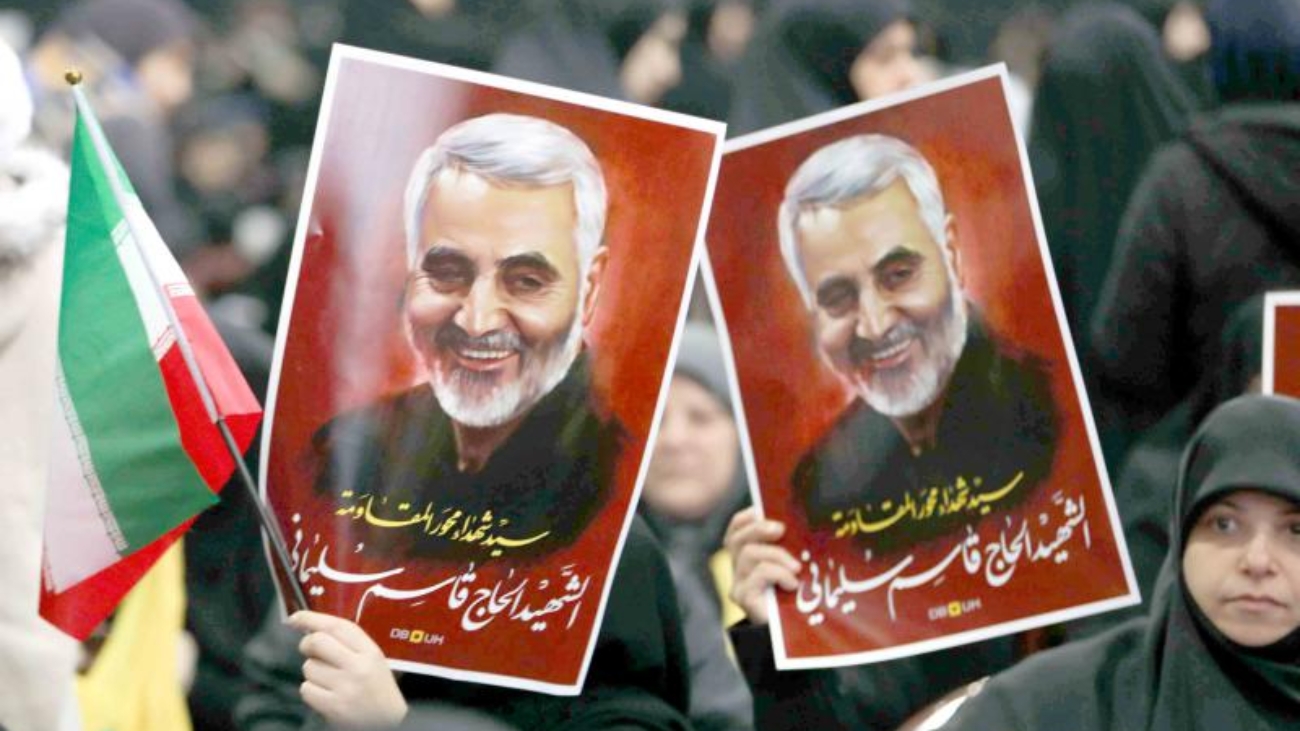This piece was originally published on the thearabweekly website https://thearabweekly.com/
TUNIS – With violence escalating on the streets of Lebanon, Hezbollah’s commitment to supporting any potential Iranian response to the assassination of Iranian Major-General Qassem Soleimani risks exposing the group’s vulnerabilities at home and abroad.
All through its existence, Iran’s Lebanese ally has maintained a dual identity: that of a powerful armed Shia group at home and an active agent of Iranian foreign policy and member of the so-called axis of resistance abroad.
This apparently schizophrenic approach to its identity has not been without risks. However, as Hezbollah Secretary-General Hassan Nasrallah voices support for Iran’s targeting of US military sites, he risks stoking resistance to his group’s political power at home and alienating potential international help for the failing Lebanese state.
Addressing supporters in Beirut on January 12, Nasrallah described Iran’s limited strike against two US bases in Iraq as a “slap” and as a “first step down a long path” that would eventually see US troops withdraw from the region.
However, as Nasrallah threatened bloody revenge abroad, Hezbollah’s position was under increasing challenge at home. Across Lebanon, protesters vented their anger at the Lebanese political class, in which Hezbollah and its allies in the Amal Movement play pivotal roles.
Nasrallah maintained that “the Americans must remove their bases, soldiers and officers and ships from our region. The alternative… to leaving vertically is leaving horizontally. This is a decisive and firm decision.”
He used part of his 90-minute address to highlight the message that Iran’s retaliation against US bases intends for Israel, a country with which Lebanon remains in a state of war.
“The attack on the American bases is also a strong message to the Zionist entity, that is always planning to ‘play’ with Iran. [Israeli Prime Minister Binyamin] Netanyahu always dreams of sending his air force to attack the infrastructure or nuclear facilities in Iran,” Nasrallah said.
Elie Abouaoun, director of the MENA programme at the US Institute of Peace, said Nasrallah reiterated that the US military in the region is the target but vowed to end the US military presence in “days or weeks.”
While Abouaoun said he doubted that was achievable, he added: “Even if the US decides to withdraw, it will take more than “days/weeks” to do it.
“So the speech has to be looked at from the two-pronged angle: clear rules of engagement that preserve the Iranian regime and its allies from an all-out war that will be detrimental to Iran while maintaining the thrust of their own constituency, especially at a time when Iranians, thousands of Iraqi Shias — and part of Hezbollah base — are protesting in the streets in Iran, Iraq and Lebanon,” he said.
Along with the unrest in the region’s Shia community are more prosaic domestic concerns. Lebanon is one of the world’s most indebted countries, one ill-prepared to weather the push back it might face should one of its most prominent political and military groups escalate its regional adventurism in support of Tehran.
After years of financial decline, Lebanon is regarded as teetering on the brink of bankruptcy, with a public debt burden equivalent to 150% and a budget deficit equal to 11% of GDP. The cost of servicing its debt is reportedly almost $4 billion a year.
Potentially offsetting Lebanon’s dire financial circumstances is the $11 billion in international pledges made at the 2018 CEDRE conference that were conditional on internal reforms and anti-corruption measures. While even these have yet to materialise, Hezbollah’s participation in a wider campaign of retaliation against the United States and its allies in response to the killing of Soleimani is unlikely to engender much goodwill in the international community.
Further exacerbating Hezbollah’s domestic challenges are protests that have dominated public life across Lebanon since October. These took an ominous turn with attacks on banks in the Beirut commercial hub of Hamra, highlighting public anger at Lebanon’s political and financial elite.
Anti-government protesters said Lebanon’s commercial banks have retained the public’s deposits while allowing politicians, senior civil servants and bank owners to move money abroad despite restrictions on such transfers.
Domestic concerns have yet to act as much of a brake on Hezbollah’s international ambitions. There is no doubt that Hezbollah will be part of the anti-US campaign in the region, Abouaoun said.
However, how close that may be to home remained uncertain.
“The space to carry out military actions in Lebanon will be limited given the fact that the US military presence in Lebanon is very light and almost invisible,” he said.

